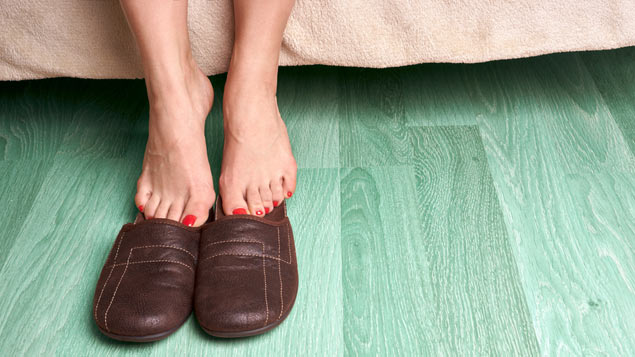[ad_1]

Creating a relaxing sleep environment is one important way that OH practitioners can look after their health and wellbeing
With workload and pressures spiralling for occupational health both inside and outside the NHS, Neil Loach argues it is vital that occupational health practitioners do not forget to look after their own physical and mental health and wellbeing.
There is a wealth of evidence available to us as academics as to the benefits of practising self-care and the relationship with better health outcomes for patients.
This has been easier said than done during the extended lockdown period; our roles require us to look after the needs of our patients or clients and there is also the increasing demand upon shifts and personal pressures to contend with.
About the author
Neil Loach is senior lecturer in postgraduate healthcare and lead for the Specialist Community Public Health Nurse (Occupational Health) pathway at the University of Derby as well as vice-president of iOH, the Association of OH and Wellbeing Professionals
To help with the current crisis, I have written an e-book looking at the ways in which healthcare workers can take care of themselves, while at the same time remembering to keep an eye open for signs of distress in fellow workers.
Using the work of Keith Carlson, an American nurse and career coach, I have adopted a nursing process approach to my book, in the hope that it resonates with healthcare workers and creates familiarity. I have also used my own photographs as a way of practising my own mindfulness.
What does self-care mean?
It’s is often forgotten, but is increasingly important in order to practice safely and effectively as a healthcare worker. It can be easily achieved with a little discipline.
Essentially, self-care is the practice of looking after and improving our own health and wellbeing in order that we can improve our resolve, and therefore in this situation, potentially our patient outcomes. This is particularly important at times of adversity and stress. Here, then, are my eight top tips.
1) Stay hydrated. While this may seem obvious, staying hydrated is often a challenge for nurses. To combat dehydration, take small sips of water throughout your shift or working day. Consider investing in an insulated tumbler to keep beverages at the preferred temperature.
2) Take breaks. When you are busy with patients or clients, it can be easy to overlook your own needs. Making time for breaks throughout your shift or working day is important; a few quick trips to the toilet can prevent unnecessary and painful urinary tract and bladder infections.
3) Eat well, plan healthy meals and snacks. As a nurse, you may be burning through calories faster than you think. You will need to frequently refresh your energy reserves, so make sure you have healthy meals and snacks readily available. Avoid relying on foods and drinks that contain high levels of caffeine and sugar. Instead, select nutritious foods that are portable and require minimal preparation.
4) Keep in touch with friends and loved ones. Shift work and being on-call – whether in the NHS or for a client outside of it – can wreak havoc on your personal life. While it may be essential to pass on an outing with friends or family at the moment, maintaining these relationships virtually can do wonders for your emotional health. Though you can’t say yes to every invitation, strive to virtually meet up with others outside of work at least once a day.
5) Use mindfulness. Meditation techniques, like deep breathing and guided imagery, can be instrumental in relieving stress and refocusing on the present. With a growing number of smartphone apps as well as meditation videos designed solely for nurses, finding a suitable format and style has never been easier. Mood self-assessment tools are available and there are also many apps available on your smartphone to assist with this also.
6) Exercise if you can. Stamina and strength are necessary to perform your job duties properly, and exercise can help. Find an exercise you enjoy — whether it is walking, cycling or yoga — and do it at least a few times a week. There are plenty of free apps available that will help with the current situation. When the gyms reopen there are often discounts available for healthcare workers that will then allow you to try out a few different exercises and find what works best for you.
7) Sleep is so important. Even if you are not working nights, creating a relaxing sleep environment can ensure you get the rest you need. Blackout curtains, eye masks, earplugs and white noise apps on your phone can be helpful options.
8) Be kind to yourself. Take time to remind yourself what an awesome job you are doing. Be kind to yourself and rest assured that you are not alone in this. Talk about how you are feeling and seek the advice and guidance of your managers and peers.
You would do well to keep a journal of your thoughts and feelings so that you can reflect on them later. Remember, you are doing an awesome job!
Neil Loach’s e-book Covid-19: Self Care for Healthcare Workers can be downloaded from https://apple.co/2y5QLcy
[ad_2]
Source link





